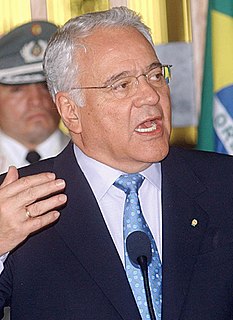A Quote by Azar Nafisi
I finally returned to Iran in 1979, when I got my degree in English and American literature, and stayed for 18 years in the Islamic republic.
Related Quotes
Ayatollah Khomeini issued a fatwa to that effect, which was then given effect in the Islamic Republic of Iran, so in the Islamic Republic of Iran, it's flexible enough to allow for sex changes, and it encourages sex changes. But if you want to change your religion in Iran, you've got some serious problems. There are other problems. You're allowed to change sex, but if you want to be a homosexual, theoretically at least, you face the death penalty. Quite how often these penalties are carried out is a moot point, but it's there on the statute books.
If you want peace and well-being to be in place in the Middle East and you want terrorism to be uprooted, then there's no path other than the presence of the Islamic Republic of Iran, you saw that in Iraq, Syria, Lebanon and Yemen that the power that was able to help the people of Iraq, Syria, Lebanon and Yemen in the face of terrorist groups was the Islamic Republic of Iran.
The English tourist in American literature wants above all things something different from what he has at home. For this reason the one American writer whom the English whole-heartedly admire is Walt Whitman. There, you will hear them say, is the real American undisguised. In the whole of English literature there is no figure which resembles his - among all our poetry none in the least comparable to Leaves of Grass
Oh my research. Well, I got an English Degree. And I got that degree in a certain time/at a certain place. If you add UC Berkeley + 1984 the other side of the = is "new historian" meaning that I studied with and was influenced by those who were interested in how the personal shaped the political (and literary), how science and literature might interact, and what the body got to do with it.
English is, from my point of view as an Americanist, an ethnicity. And English literature should be studied in Comparative Literature. And American literature should be a discipline, certainly growing from England and France, Germany, Spain, Denmark, and the Native traditions, particularly because those helped form the American canon. Those are our backgrounds. And then we'd be doing it the way it ought to be done. And someday I hope that it will be.






































